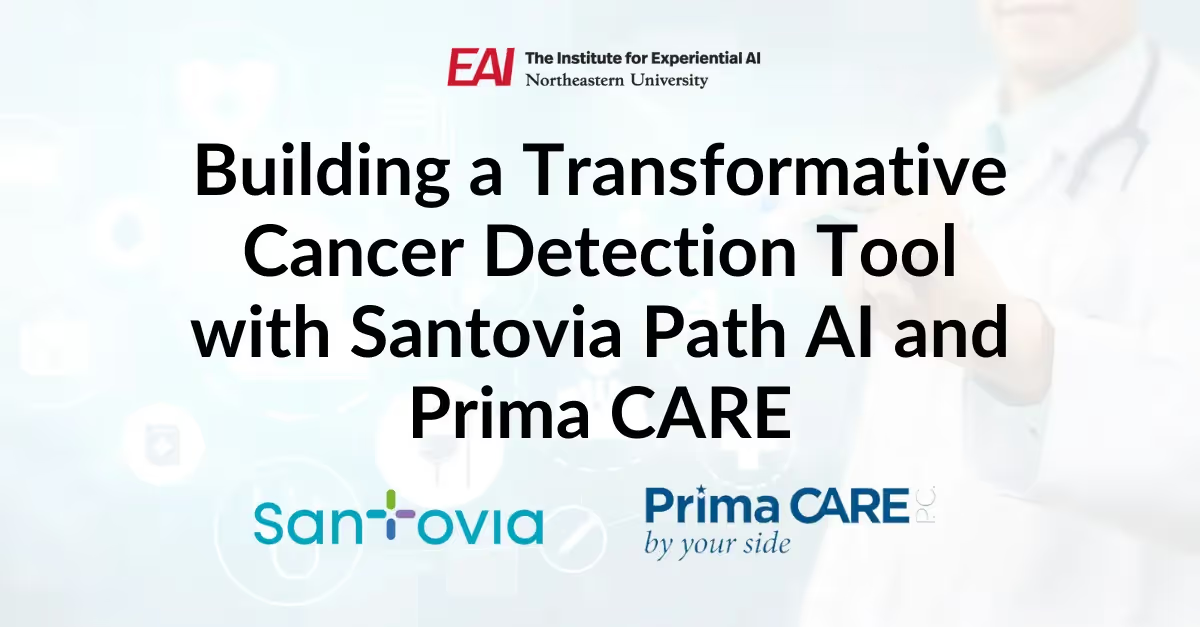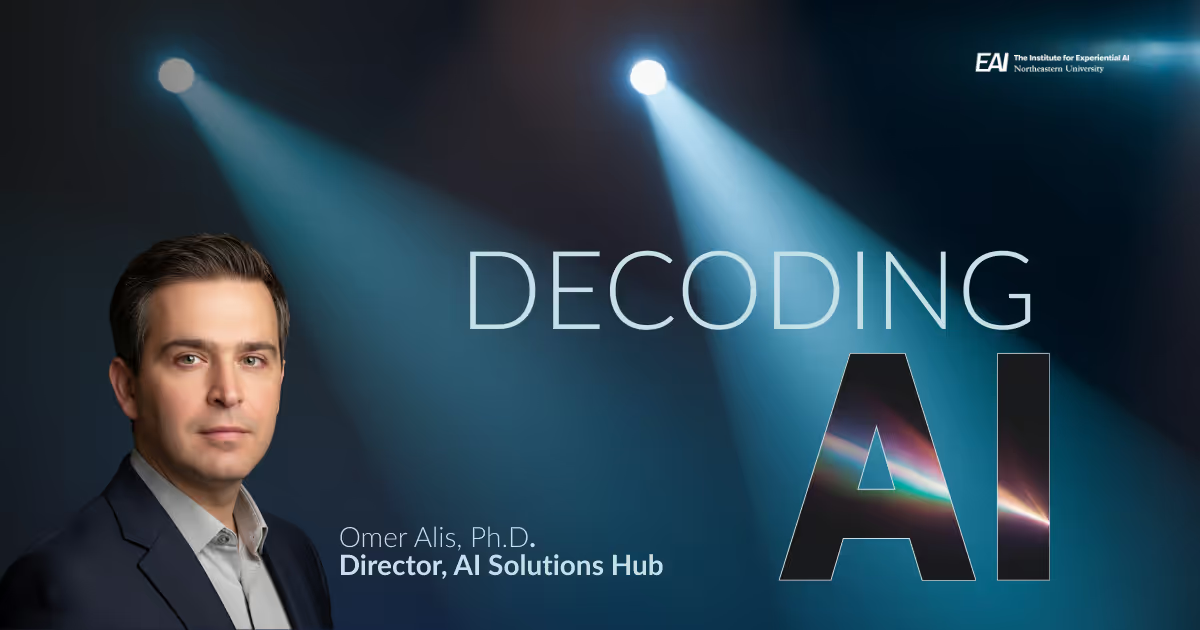Northeastern Experts to Build Transformative Cancer Detection Tool with Santovia Path AI and Prima CARE

Principal investigators Gene Tunik, the director of AI + Health at the Institute for Experiential AI, and Saeed Amal, a bioengineering research professor at Northeastern University and a member of the Roux Institute, will use AI to make faster, more accurate cancer diagnoses as part of a new collaboration with Prima CARE, a leading clinical healthcare practice, and Santovia Path AI, a digital pathology company working to modernize healthcare diagnostics.
Through the project, a multidisciplinary team will build advanced AI models to analyze digitized human tissue samples and classify cancer cells, which could transform the way clinicians diagnose and treat cancer.
"This project exemplifies Northeastern’s applied research approach,” said Tunik, who is also a professor at the Bouve College of Health Sciences. “Artificial intelligence holds potential to bring quicker, more accurate cancer detection using digitized whole slide images of tissue biopsies. It can find pathologies at a dramatically higher throughput, with pathologists-in-the-loop verifying whether the model output is correct from halfway around the world, allowing the industry to overcome pathologist shortages, and it can bring all those improvements at lower costs.”

In addition to building models to detect cancer, Northeastern experts will develop intuitive visualization tools to make it easy for medical professionals to take action based on model outputs, ensuring the tools fit seamlessly into the workflows of pathologists and clinical teams.
"This project represents the perfect synergy of AI innovation and healthcare application,” said Amal. “Our goal is not only to push the boundaries of what’s possible in AI but also to create solutions that save lives. This partnership is a critical step in turning this vision into reality.”
The multi-year project combines cutting-edge AI expertise with state-of-the-art healthcare data. It will involve Northeastern leaders, graduate researchers, postdoctoral associates, and more. Prima CARE will provide digitized patient samples for the project in partnership with GoPath Diagnostics.
“This technology will revolutionize the pathology industry by providing the same types of physician support tools that exist today in the radiology industry,” says Richard Mateus, the CEO of Prima CARE. “The beauty about this partnership is by combining physicians who are doing the actual day-to-day work with the university subject matter experts and commercial partners, we will get to market at warp speed.”
The partnership structure is designed to accelerate the deployment of these tools at scale, improving medical care while providing a blueprint for how to integrate advanced technology into a high-performing clinical practice.
"This is not being done in a vacuum by AI experts who want to create a model that might later be incorporated into a healthcare practice,” Tunik said. “This project was born out of conversations between Northeastern’s experts and clinicians who are facing real-world challenges, and it is being co-developed with the clinical care team.”
The initiative underscores Northeastern’s commitment to experiential, applied AI research and a human-centered approach to AI technology.
"This doesn’t mean that pathologists are going to become obsolete,” said Maria Giovanna Trovato, global strategy and business development manager in health and life sciences at the Institute for Experimental AI. “On the contrary, they are going to benefit from a powerful new member of the pathology lab that can help them dedicate more time to high-value work while delivering care to more patients, especially in rural areas where access to world-class care is largely still a dream.”
Today, most pathologists still diagnose cancer manually by looking at slides of each patient biopsy under a microscope in a time-consuming process that’s susceptible to human error. Precise, rapid AI detection of cancer could revolutionize oncologists’ ability to provide early, life-saving treatment and personalize medical care.
The project is the latest in a growing list of partnerships between Northeastern University and healthcare companies on the leading edge of the industry’s digital transformation. Experts from the Institute for Experiential AI and the Roux Institute have recently partnered with Santovia, a separate company started by the leaders of Santovia Path AI, to incorporate advanced AI into its patient engagement platform to maximize user engagement.
Additional projects include applying AI to build remote sensing solutions, detect mental health issues, inform triage decisions, and more. Learn more about how we help healthcare partners responsibly integrate AI solutions.




